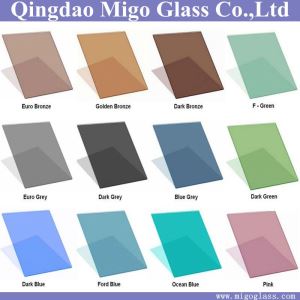Aluminum Mirrors: A Lightweight Alternative
Aluminum mirrors are a distinct type of mirror that utilizes aluminum or aluminum alloys as the primary material, rather than the traditional glass substrate. These mirrors are particularly well-suited for applications where weight is a critical factor, such as in aerospace, defense, and medical optical systems.
The primary advantage of aluminum mirrors is their lightweight nature, making them an attractive alternative to conventional glass mirrors. Their lightweight properties make them suitable for use in scanning mirrors and galvo mirrors, where a compact and maneuverable design is essential.
However, aluminum mirrors do have some limitations compared to their glass counterparts. The reflective ratio of an aluminum mirror is around 70%, which is slightly lower than that of a glass mirror. Additionally, the reflected shapes and colors can be more easily altered with an aluminum mirror, which may not be desirable in certain applications where accurate reflection is of critical importance.
Another consideration is the durability and lifespan of aluminum mirrors. They have a shorter lifetime and are more susceptible to corrosion compared to silver mirrors. Silver mirrors, on the other hand, offer a more realistic and darker reflection, as well as a longer service life.
The choice between aluminum and other mirror materials ultimately depends on the specific requirements of the application and the desired performance characteristics. While aluminum mirrors excel in terms of weight and compactness, they may not provide the same level of reflective quality or durability as glass or silver mirrors. Users must carefully evaluate the trade-offs and select the mirror type that best meets the needs of their optical system.
Aluminum Mirrors: A Cost-Effective Solution
Aluminum mirrors offer a budget-friendly alternative to traditional mirror options. These mirrors are manufactured by depositing a thin aluminum film onto a clear glass substrate. While they boast a reflectivity of around 90%, the resulting reflections can appear less vivid, and the colors may appear somewhat muted compared to other mirror types.
One of the key advantages of aluminum mirrors is their cost-effectiveness. They are generally more affordable than silver mirrors, making them an attractive option for those working with a tighter budget. Additionally, aluminum mirrors tend to be lighter in weight than their silver counterparts, which can be beneficial for certain applications where ease of handling and installation is a priority.
However, aluminum mirrors do have some limitations. Due to the higher reactivity of aluminum compared to silver, these mirrors are more susceptible to oxidation when exposed to moisture. This makes them less ideal for use in bathrooms or outdoor settings, where they may be vulnerable to environmental factors.
Furthermore, aluminum mirrors often suffer from waviness and feature a thinner coating, which can make them more prone to scratches and other forms of damage. The standard thickness of aluminum mirrors typically ranges from 2mm to 4mm.
Despite these drawbacks, aluminum mirrors remain a cost-efficient and budget-friendly option for various applications, such as in the automotive industry, residential settings, and industrial environments. The natural corrosion resistance of aluminum, thanks to the protective oxide layer that forms on its surface, helps to mitigate some of the concerns about deterioration and rust.
Ultimately, the choice between aluminum mirrors and other mirror materials will depend on the specific requirements of the application, as well as the available budget and performance needs. Aluminum mirrors can provide a practical and cost-effective solution for those seeking a functional mirror option without the higher price tag.






